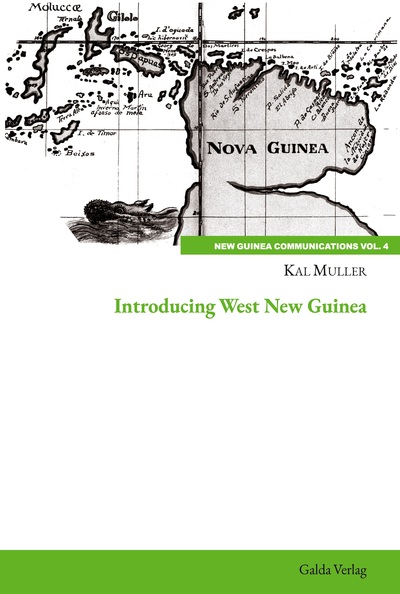- EAN13
- 9783962031756
- Éditeur
- GALDA VERLAG
- Date de publication
- 15 septembre 2021
- Nombre de pages
- 116
- Dimensions
- 23 x 15,5 x 0,7 cm
- Poids
- 206 g
- Langue
- eng
Introducing West New Guinea
Kal Muller
GALDA VERLAG
Prix public : 38,50 €
THE BOOK West New Guinea, the Indonesian neighbour of Papua New Guinea is little known to both the academic and scientific, and indeed the world at large, as the Indonesian government jealously guards awarding permits to researchers and foreign journalists. Explorers and anthropologists wrote extensively about Dutch New Guinea. It is from these books and manuscripts, and newly published materials collected by Dr Kal Muller, that we now have a concise document for anyone studying West New Guinea. A necessary primer, it gives an extensive overview - the formation of the island, its flora and fauna, peoples and cultures, early trade, and its history till the end of World War II. THE SERIES The aim is to provide a conduit for the publication of studies on the Island of New Guinea, with its two established political divisions, but will also include other associated patterns of islands. It will enable contributions from new knowledge workers—with their dissertations—and from established scholars. As there are numerous scholars who would like better coverage of the areas in which they have explored—as a tribute to the people they have worked with—as well as local scholars who understand the importance of their unique areas. It is felt that the approaches being trialed in the visual anthropology part of the series as area studies will bring a wider attention to the remarkable nature of the island. The first volumes will be on modes of communication: oral history and folklore, and the emergence of a local literature. While the representation of all disciplines is welcome, comparative and whole island studies would be of great interest as well. For this, collaborative works or edited volumes may be needed. It will allow for academic publications of a more preliminary kind—rather than exhaustive monographs, which are becoming more and more impossible to produce. Where is the knowledge we have lost?


















